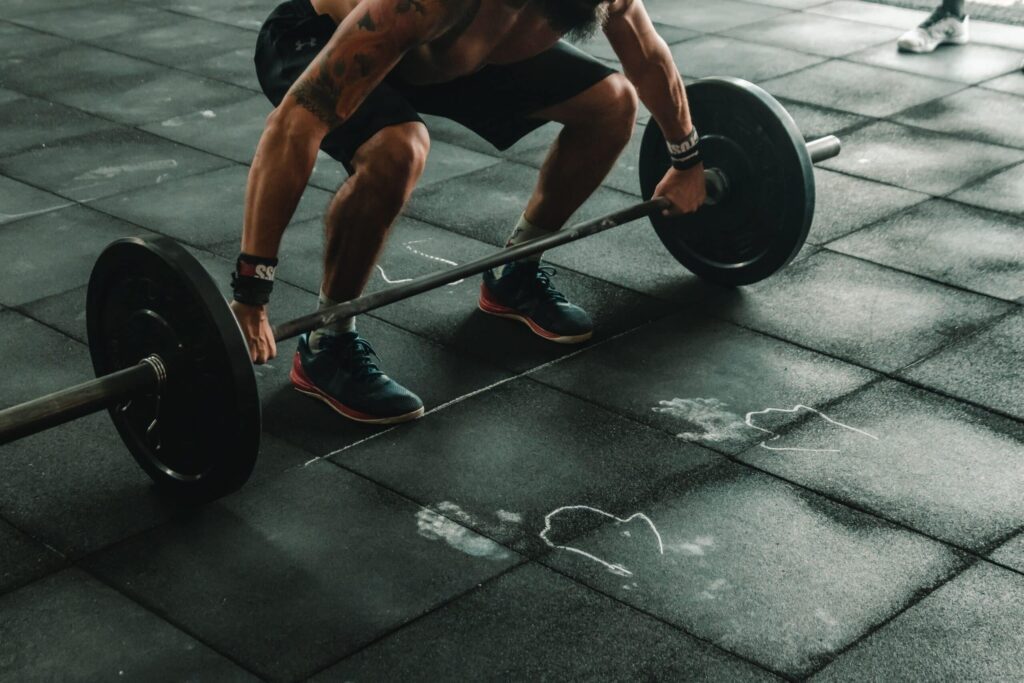As an experienced fitness and wellness enthusiast, I’ve witnessed firsthand the vital role hydration plays in our workout routines and overall health. Water comprises nearly 70% of our body, and its roles are myriad: from nutrient transportation to waste removal and temperature regulation.
Table Of Contents
−- Recognizing the Signs of Dehydration
- The Crucial Balance of Liquids for Improved Physical Condition
- Preventing Water Loss and Rehydration Strategies
- Daily Hydration Guidelines
- Exercise Hydration Tips
- For Activities Under 90 Minutes
- For Extreme Conditions and Activities Over 90 Minutes
- Post-Exercise Hydration
- Final Thoughts on Hydration
While working out, maintaining optimum hydration can greatly enhance your performance, reduce the risk of injury, and even accelerate recovery. This article aims to enlighten you on why you need to hydrate for optimal workouts and provide practical advice on achieving the right hydration balance for your fitness regime.

Recognizing the Signs of Dehydration
Signs of dehydration include muscle cramps, dizziness, nausea, headaches, fatigue, and lethargy. To maintain optimum hydration, it is important to consciously focus on fluid intake throughout the day, not only during workout sessions.
The Crucial Balance of Liquids for Improved Physical Condition
Given that about 60% of our overall weight is due to body fluids, athletes like bodybuilders whose physique appearance can significantly be affected by the degree of water content, have a major incentive to focus on hydration. The impact of liquids on their bodies is a constant concern, not just during the contest stage but throughout the training preparation period.
Preventing Water Loss and Rehydration Strategies
In the modern world, athletes have an array of options including liquid supplements, post-workout drinks, and abundant bottled water. The decision between solely relying on water or including a daily sports drink should depend on the intensity, frequency, and duration of their workout routine, along with their individual needs for minerals and other nutrients.
For low-to-moderate intensity exercises that last less than an hour, water is generally sufficient to replace lost fluids. However, for longer and more intense workouts, sports drinks become more effective for rehydration, replenishing carbohydrates, and maintaining electrolyte balance.
Daily Hydration Guidelines
Preventing dehydration should be a daily task. Here are some helpful tips:
- Start your day by drinking 8-16 ounces of water.
- Take small sips of water throughout the day.
- Consider low-calorie, low-sugar drinks but avoid alcohol or caffeinated drinks, which can cause dehydration.
Exercise Hydration Tips
- Two hours before exercise, drink 8 to 16 ounces of water.
- During exercise, aim for 20-40 ounces of a cool, non-carbonated beverage per hour. This equates to ½ to one cup of fluid every 15 minutes.
- Research suggests that flavored fluids, lightly sweetened and containing some sodium, stimulate voluntary drinking more than water alone.
For Activities Under 90 Minutes
Drinking water should be prioritized when participating in any activity lasting 90 minutes or less. However, proper hydration doesn’t end with the conclusion of your workout. Here’s how to ensure optimum hydration:
- Drink at least 8 to 16 ounces of water one to two hours before activity, with the last 8 ounces consumed about twenty minutes before exercise.
- During exercise, sip 4 to 6 ounces of water every 15 minutes.
- Upon completion, drink another 8 to 16 ounces of water.
It’s essential not to consume excessive amounts of water all at once during or immediately after exercise. Instead, allow about 30 minutes after exercise has stopped for normal digestion to resume before taking in large volumes of fluid.
For Extreme Conditions and Activities Over 90 Minutes
After 90 minutes of exercise or 30 minutes of exercise or activity in extreme conditions, the body begins to lose electrolytes, which must be replaced. Here’s how to ensure maximum hydration in such conditions:
- Drink water for the first 90 minutes of activity, then switch to a sports drink, or switch to a sports drink after 30 minutes of exercising in extreme heat or cold.
- Weigh yourself before and after exercise, then consume 6 ounces of fluid every 15 minutes until your weight has returned to normal.
- Drink 8 to 10 ounces of a sports drink every two hours.
Between servings, drink water. It’s also recommended to snack on salty foods.
Post-Exercise Hydration
After your workout, drink 16 ounces of fluid for each pound lost during exercise. Don’t wait until you feel thirsty; by the time you feel thirsty, you may already be dehydrated.
Final Thoughts on Hydration
Active individuals should aim to drink 10 to 12 cups of fluids daily. Remember to always have a bottle of water or sports drink with you when working out to ensure proper hydration. Keeping an eye on your urine color is a good indicator of hydration status; clear to light-colored urine signifies proper hydration.
Remember this quote by Patricia Alexander, “The people who say they don’t have time to take care of themselves will soon discover they’re spending all their time being sick.” Let’s not let dehydration be the reason for decreased performance or feeling ill. Stay hydrated, stay healthy, and make the most out of your workouts.

Jay
Jay is a health and wellness enthusiast with expertise in water quality and nutrition. As a knowledgeable advocate for holistic well-being, Jay successfully manages Type 2 Diabetes through informed lifestyle choices. Committed to sharing reliable and authoritative insights, Jay combines firsthand experience with a passion for enhancing health."

